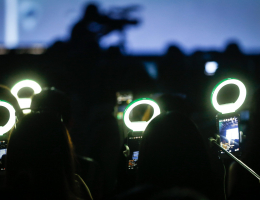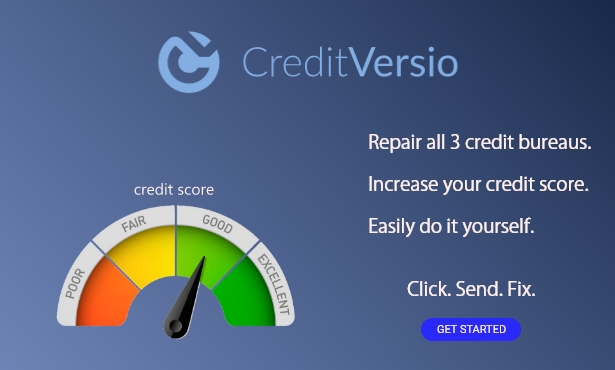BARCROFT MEDIA
Is the Influencer Era Coming to an End?
Addressing wealth, health, and racial disparities means the end of celebrity culture as we've known it.
By Laura Pitcher for Teen Vogue
The current global health crisis has been referred to as “the great equalizer,” yet the actions of influencers and celebrities have made it painfully obvious to many that this is not the case. As a result, we’re seeing a shift in our relationship to influencer culture with large displays of wealth and privilege such as Kim Kardashian’s “private island birthday party” being mocked during a very deadly second wave.
At the beginning of the pandemic, influencer Arielle Charnas received backlash for heading to the Hamptons with her family after a positive Covid-19 test result. After which, she posted an apology message on her Instagram Stories. “I’m sorry for anyone that I’ve offended or hurt over the last couple of weeks. We’re just trying to navigate through this difficult time, as I’m sure so many people are," she said.
Ellen DeGeneres joked, while shooting her talk show for a YouTube edition from home in April that being trapped in one of her many multimillion-dollar mansions was “like being in prison,” despite actual prisons being described in a report by The Guardian last April as a possible “a death sentence” during the pandemic. Following online backlash, the video on YouTube was temporarily made private and the version of the video posted to the show’s Twitter account was deleted, according to the Washington Post. On December 10 {PLEASE ITAL WASHINGTON POST. THEN IN NEXT LNK, MAKE IT COVID-19. AND DELETE REPETITION FROM LAST WEEK ON}, DeGeneres announced that she had tested positive for Covid-19Last week, DeGeneres announced that she has tested positive for Covid-19.
As thousands {IS IT THOUSANDS OR TENS OF THOUSANDS?} died globally in the first month of the pandemic {CAP I ON “IMAGINE” AND CHANGE OVER INSTAGRAM TO ON INSTAGRAM}, celebrities singing “imagine” over Instagram left a sour taste in the mouths of many. And it has continued, from the Twitter roasting of the star-studded “I take responsibility” video at the height of the Black Lives Matter protests to backlash from Kendall Jenner’s recent birthday party, the aspirational nature of influencer culture seems to be the exact cause of its current downfall, as we know it.
As the pandemic has caused many of us to shift our priorities, what we expect from an influencer is also changing. This is something that {COHOST IS ONE WORD} Bobo Matjila, co-host of the Bobo and Flex podcast, calls “the scam of relatability.” “One of the problems with influencer culture is the paradox: On one hand influencers position themselves as relatable, but mass relatability only further isolates them from their audience,” she tells Teen Vogue. “So actually, we're not all in this together and I'm glad the pandemic has highlighted this.”
Matjila believes that we need to de-center celebrities and influencers from socio-political conversations “because they're too far removed from the lived experience of the everyday person to have any valuable input.” “It's also important to remember that all people in positions of power benefit from the oppression of Black people and working-class people, so we should expect absolutely nothing from celebrities in the fight for liberation as they quite literally profit off of our suffering,” she adds. Matjila says the only valid form of activism from celebrities is the distribution of wealth, resources, and power.
In the rising awareness of wealth, health, and racial disparities that mean Black, Indigenous and Latino Americans all have a COVID-19 death rate of more than 2.7 times white Americans {A COVID-19 DEATH RATE MORE THAN 2.7 TIMES THAT OF WHITE AMERICANS} according to an APM Research Lab report in December, the mega-wealthy influencer has become a reminder of the capitalist society that has resulted in billionaires reportedly getting $637 billion richer during this time, according to a calculation in October by Business Insider. “Dismantling capitalism means dismantling celebrity culture, dismantling influencer culture, and dismantling the concept of hegemonic power entirely,” says Matjila. “We need everyone to look inwards to their community for change and inspiration, instead of outwards to oppressive power structures.”
With this in mind, there’s little surprise that new-age influencers who have become popular during the pandemic have been thought leaders in their communities, from Nairobi-based comedian Elsa Majimbo {MAJIMBO'S} hot takes on avoiding friends to Ziwe Fumudoh’s YouTube series Baited. This, says Mae Karwowski, CEO and founder of influencer marketing company Obviously, reflects their projected future of influencer culture and marketing.
“Influencer marketing is just evolving and becoming more evasive. The stereotype of the classic influencer is morphing very quickly,” she says, referencing the fact that prior to this, influencer culture encompassed lifestyle content and alluded to wealth. “I don’t think people fully understand how quickly influencer marketing is growing during this time.” While it’s clear that the backlash created by celebrities and mega-influencers during the pandemic hasn’t slowed down the growth of influencer marketing, Karwowski says there has been a shift in what brands are looking for.
Ninety percent of the client work at Obviously is with micro-influencers where, Karwowski says, brands have seen added value when many of us are online more than ever. “We’re working primarily with people with 30,000 followers, but a very engaged audience,” she says. “You have influencers across every vertical.” This reflects a trend of the general public turning to hyper-specialized influencers in their areas of interest or to smaller, more relatable accounts of people in their communities.
Social influencers have been around since before social media — cue the British monarchy and Princess Diana — so it’s unlikely that celebrity and influencer culture will completely evaporate. Consider the rise of TikTok stars and our increasing use of social media, with July 2020 seeing a rise of 10.5%, compared with July 2019, according to a GlobalWebIndex survey. There’s also the fact that not all influence is inherently bad, as Elliot Page publicly came out as transgender, and there are moments of celebrity culture that can be unifying.
The shifting nature and role of an influencer, however, is a reflection of the current class war, as some experts predict the global pandemic will lead to a rise in populism. As we work to address the disparities in society, aspirational influencers will become less and less relevant. While this won’t mean the end to influencer culture altogether, it could mean the end of celebrity and influencer culture as we know it.{THE DEK IS A DIRECT REPETITION OF THIS.}
Envisioning a fairer “new normal” post-pandemic world relies on our ability to take the extreme wealth of celebrities off a pedestal and instead support smaller accounts, local businesses, and BIPOC creatives. The good news is there’s an abundance of intelligent, talented, and socially engaged micro- and macro-influencers who are more than qualified and deserve our admiration.
Republished by Persona Digest from www.teenvogue.com







.jpg)

.jpg)
.jpg)